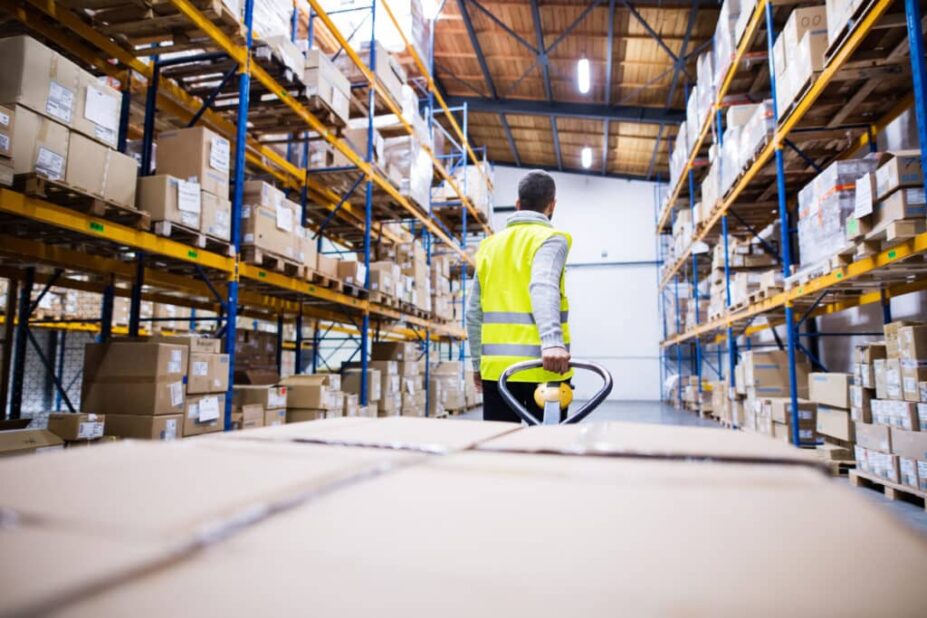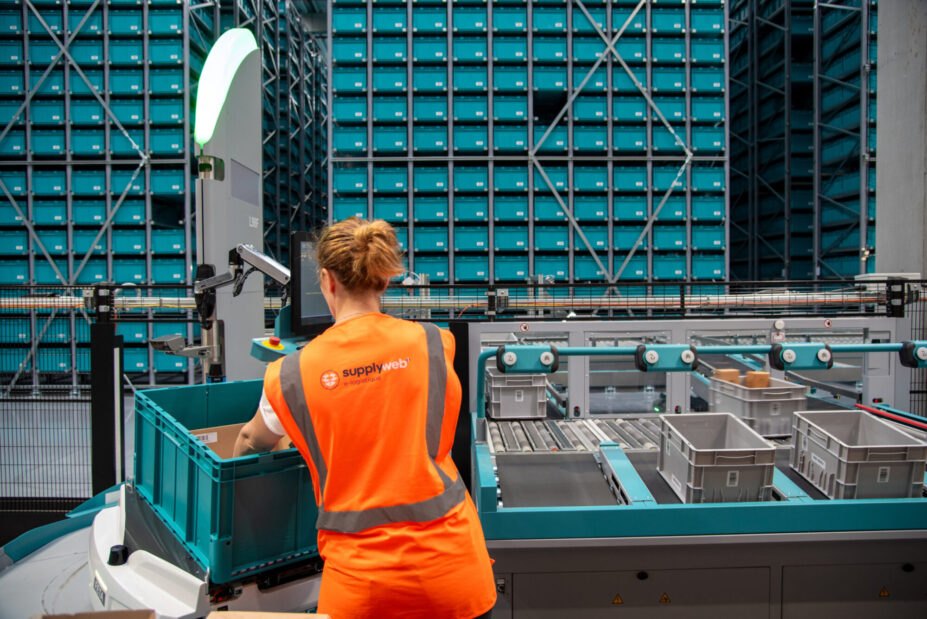Globalization, technological advancements, and the rise of e-commerce have made economic relationships more complex and interconnected than ever, especially in the flow of goods across supply chains. Contract logistics specialists are valuable resources for companies wanting to outsource some or all of their supply chain operations. Read on to discover how contract logistics works, explore different models, uncover its key benefits, and find tips for choosing the right contract logistics partner.

What are Contract Logistics?
Contract logistics is the outsourcing of supply chain management and logistics services to a third-party provider. These providers, known as contract logistics specialists, manage various aspects of the supply chain, including warehousing, transportation, inventory management, order fulfillment, and sometimes even packaging and assembly.
The goal of contract logistics is to improve efficiency, reduce costs, and provide expertise, allowing companies to focus on their core business activities while their logistics operations are handled by skilled professionals.
Contract Logistics Support Levels
The level of a contract logistics service provider’s involvement in a customer’s supply chain, along with the types of services offered, determines its classification.
- First Party Logistics (1PL): This typically involves a company handling all logistics functions internally, without outsourcing. While this provides control and flexibility, it requires significant investment and can face scalability issues as the business grows.
- Second Party Logistics (2PL): Second-party logistics (2PL) involves outsourcing transportation to a dedicated carrier—such as a trucking, airline, or shipping company—to move goods from one location to another. The 2PL provider owns the vehicles or transport assets used for shipping.
- Third Party Logistics (3PL): This common logistics model allows a company to outsource part or all of its supply chain management to a specialized provider. 3PL companies manage logistics functions like warehousing, inventory, order fulfillment, and transportation, offering end-to-end solutions.
- Fourth Party Logistics (4PL): These providers act as strategic consultants, designing and managing complex supply chains across multiple 3PLs. They use technology to optimize networks, enhance efficiency, reduce costs, and improve visibility, coordinating subcontractors without owning physical assets.
- Fifth Party Logistics (5PL): This emerging model manages entire supply chain networks, often for complex e-commerce operations, using advanced technology like AI to optimize and integrate logistics services across partners. They provide end-to-end solutions, coordinating everything from warehousing to last-mile delivery to meet demand efficiently.
The Benefits of Contract Logistics
Contract logistics offers several key benefits:
- Cost Savings: Reduces operational costs through optimized processes and economies of scale.
- Efficiency: Streamlines supply chain functions, enhancing speed and accuracy.
- Expertise: Access to specialized skills, technology, and industry knowledge.
- Scalability: Adjusts resources based on business needs, allowing for flexible growth.
- Focus on Core Business: Frees up company resources to focus on strategic, core activities.
Key Factors to Consider When Choosing a Contract Logistics Partner
When selecting a contract logistics provider, businesses should look for a partner that aligns with their operational goals, offers flexibility, and provides expertise. Here are the critical factors to consider:
Industry Experience and Expertise
Choose a provider with proven experience in your industry, as they’ll understand your specific supply chain challenges and regulatory needs. Request case studies and testimonials from similar clients, and if possible, tour their facilities. Ask if they have team members with industry-specific expertise who are familiar with your sector’s logistics and regulatory landscape—a dedicated team can offer valuable insights for effectively managing your supply chain.
Range of Services
When choosing a contract logistics provider, it’s important to assess their range of services to ensure they meet both your current and future needs. Choose providers that demonstrate resilience in handling disruptions and challenges, along with the flexibility to adapt to changes in your business model and customer demands. Key areas to evaluate include warehousing, transportation, inventory management, and any additional value-added services.
Advanced Automation Systems
Advanced automation, such as Autonomous Mobile Robots (AMR) and Automated Storage and Retrieval Systems (ASRS), enables fast and accurate processing of large order volumes. For example, the Exotec Skypod system—a mobile ASRS used globally by 3PLs like CEVA Logistics and GEODIS—employs goods-to-person robotics to transport items between high-density storage racks and ergonomic picking stations, retrieving any item within two minutes.
Technology and Innovation
When choosing a contract logistics provider, prioritize those dedicated to advanced data technology with strong data and analytics capabilities. Look for real-time visibility into inventory, shipments, and order status to enable swift, informed decisions. Providers offering predictive analytics can optimize inventory and forecast demand, while customizable dashboards and reports let you monitor key KPIs tailored to your goals. These features improve supply chain agility, boosting performance and customer satisfaction.
Geographic Reach
A partner with an extensive network of facilities and transportation options can better manage regional, national, or international logistics. This reach is crucial for companies looking to expand or ensure consistent service levels across multiple locations.
Cultural and Operational Alignment
Choose a provider that shares your company’s values and operational mindset. Strong cultural alignment facilitates smooth communication and builds a collaborative relationship that’s focused on long-term success.

Supplyweb, a leading 3PL for over 150 e-merchants, uses the Exotec Skypod system for automated storage and retrieval of goods.
Final Thoughts: Making Contract Logistics Work for You
In an increasingly complex global economy, contract logistics offers companies the expertise, flexibility, and efficiency needed to streamline supply chains and focus on core business goals. By understanding the various logistics models, benefits, and factors for selecting the right provider, businesses can effectively leverage contract logistics to drive growth, optimize operations, and meet customer demands with greater agility.
Share
Insights
-
April 15, 2025Top Warehouse Trends for 2025: Future of Automation
-
April 9, 2025Material Handling: Basics, Benefits, & Automation
-
April 4, 2025Complete Guide to Pick-and-Place Automation
News
-
March 24, 2025Exotec Showcases Next-Gen Skypod System at ProMat 2025
-
March 17, 2025Exotec Announces Partnership with Oxford Industries to Implement Next Generation Skypod System in New Multi-Brand Distribution Center
-
February 27, 2025Colruyt‘s Collect&Go continues its automation journey with Exotec
Events
-
May 7, 2025Exodinner: Indianapolis, IN
-
May 22, 2025 | Cincinnati, OHExotour: Cincinnati, OH
-
May 28, 2025Exodinner: Vancouver, BC